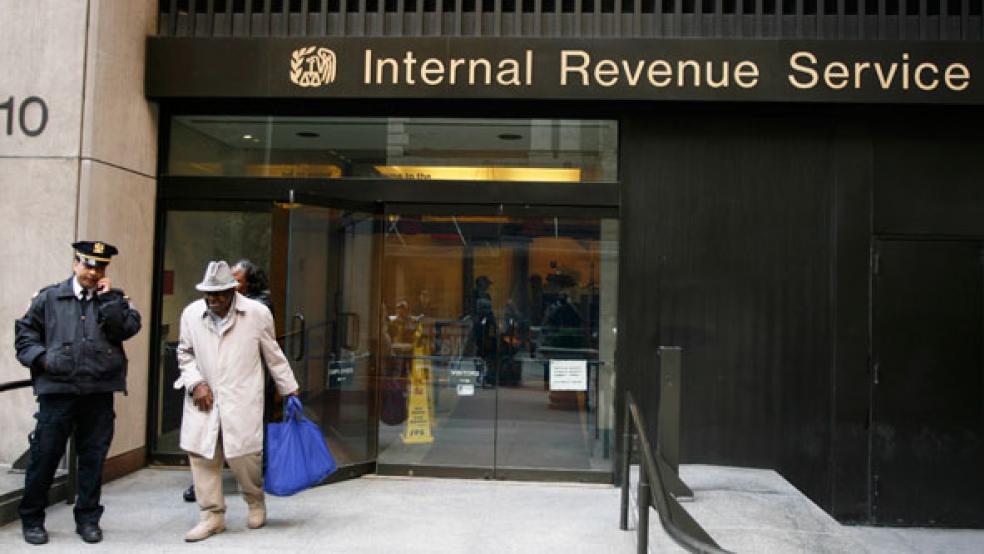Conspiracy theorists will feel let down by the latest details to surface about the IRS targeting of Tea Party groups.
Rep. Elijah Cummings (D-MD) released on Tuesday a 204-page transcript of an interview an IRS manager in Cincinnati conducted with staffers from the House Oversight and Government Reform Committee.
RELATED: How Congress Could Have Prevented the IRS Scandal
As the ranking Democrat on the committee, Cummings said that evidence of a grand conspiracy has yet to surface from the ongoing inquiry. No one has claimed tampering by the White House. No IRS employee has confessed to grinding an ideological axe by grouping together Tea Party-themed groups applying for nonprofit status.

Committee Chairman Darrell Issa (R-CA) – who has been aggressively pursuing the controversy since it became public last month in an inspector general’s report – responded in a statement that the transcript serves as “a roadmap for IRS officials to navigate investigative interviews with Congress.”
The answers provided by the IRS manager in Cincinnati fail to verify past claims by Issa of an attempt by President Obama to suppress his opponents between 2010 and 2012. “This was the targeting of the president's political enemies, effectively, and lies about it during the election year, so that it wasn’t discovered until afterwards,” Issa told CBS News on May 14.
The name of the IRS manager was redacted, but his answers shed little light on the allegations from GOP lawmakers:
• The Cincinnati supervisor is a “conservative Republican,” volunteering the information point blank to committee staffers without much elaboration or further ideological explanation.
The involvement of Lois Lerner, who oversaw the tax exempt division for the IRS and invoked her Fifth Amendment protection against self-incrimination before the committee, remains unclear. She reportedly did know about the specific reviews of these conservative nonprofits in 2011. The supervisor met Lerner, but “had no interchange with her.” Lerner held town hall meetings during her trips to Cincinnati, and once informed the supervisor via a phone call about a promotion being denied.
• The first Tea Party case was brought to the supervisor’s attention in late February, 2010. As the manager of a screening unit for tax exempt organizations, the supervisor recognized that “media attention” stemming from the political activities of Tea Party groups could make this a “high-profile case.” The supervisor flagged the individual organization and sent it up the food chain to Washington, noting that similar scenarios in the past involved unnamed “celebrities.”
• The supervisor wanted to ensure the IRS had a consistent policy for evaluating any Tea Party-themed organizations. A “social welfare” group applying for 501(c)(4) status is not supposed to have the majority of their activities involve politics.
The supervisor denied – despite claims to the opposite in other committee interviews – that specific Tea Party criteria were established. But the whole goal was to create standards so that similar entities were examined in a uniform way by the same group of agents. “Why this was brought to my attention was for consistency,” the supervisor said. “It’s just not good business. It’s not good customer service.”
• The IRS agents under the supervisor looked at 20-25 cases a day. Each case was examined for less than half an hour. About 35 percent of each cases reviewed this first time were approved. About half of the other cases had “minor issues” that could be fixed quickly, such as having the wrong language in documents. The Tea Party cases identified met neither of these classifications and were deemed “special.”
“If we go ahead and see that everything is in there that’s needed … it would be approved,” the supervisor said. “I did not instruct that if you had ‘Tea Party’ in a case that it would automatically go to another group for screening.”




